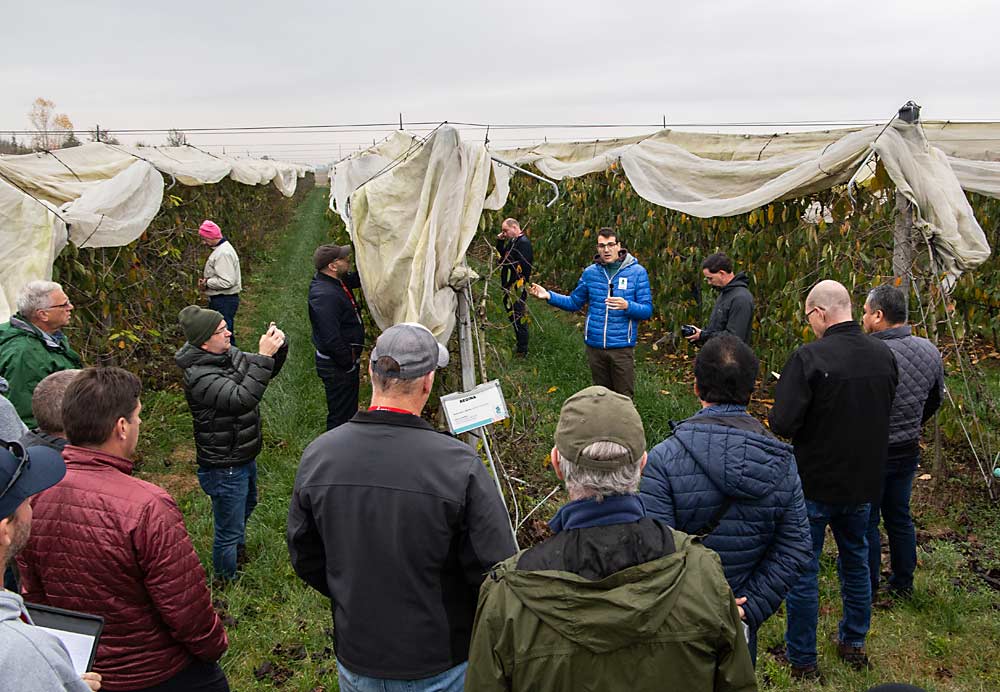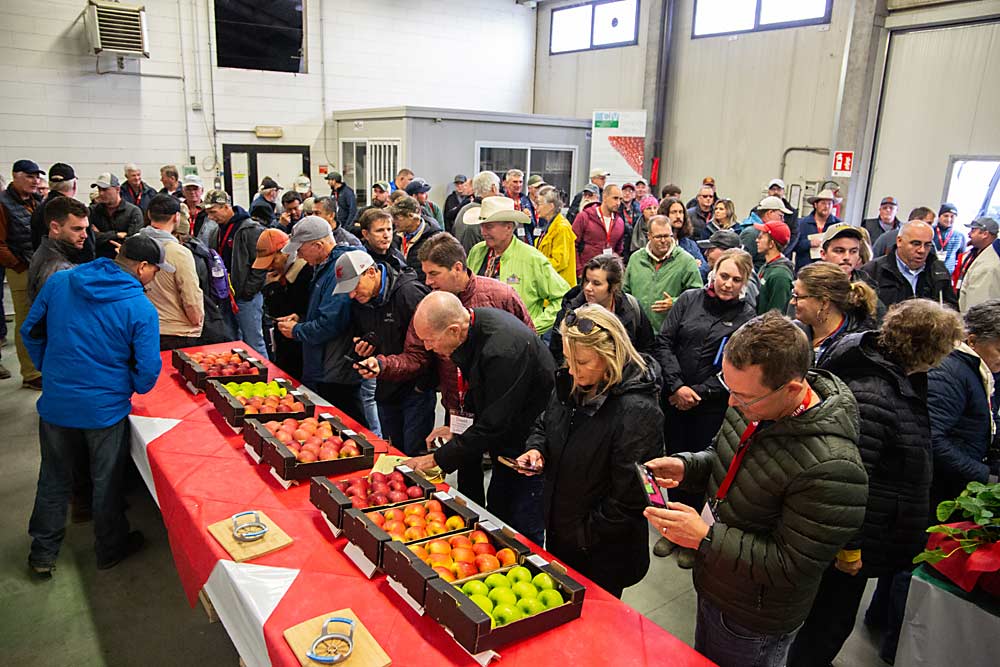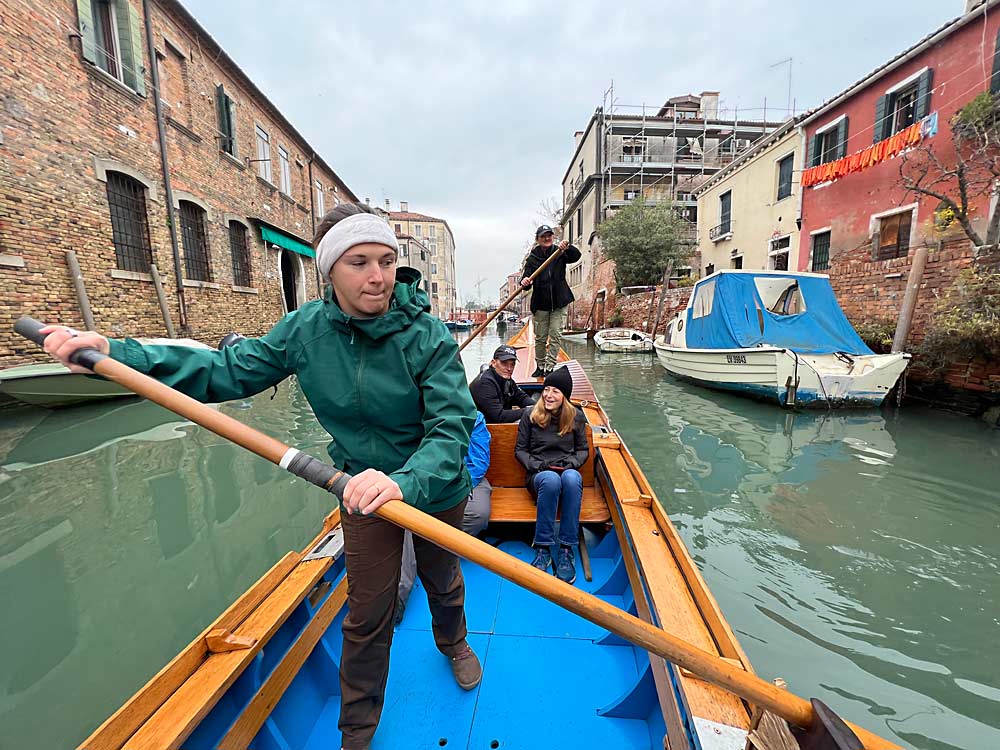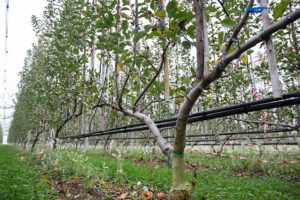
The International Fruit Tree Association’s tour of Italy — IFTAly, if you will — continued Nov. 14 in the Ferrara region with tours of high-density fruit blocks and a breeding company visit, followed by some sightseeing in Venice on Nov. 15.
Northeast of Bologna, Ferrara is an agricultural region of the Po River Valley, parched the past two years by historic droughts. The river, source of the area’s irrigation, experienced 1,000-year-low water levels during the summer of 2022.
It rained the day IFTA visited.
“We are quite happy that it’s raining,” said Jacopo Diamanti, research and development manager for Salvi Vivai, a fruit-producing company that prides itself on its large cherries. The growers briefly held the Guinness world record for largest cherry in 2021, with a fruit weighing 26.45 grams. Another Italian grower beat that later the same year.
Diamanti showed a block of Reginas that produces 70 percent of the desired 28-millimeter caliper. The orchard is double-netted to stymie cold, heat and spotted wing drosophila. Trees are kept short enough for hand picking without ladders and to allow light to reach the bottom of neighboring rows.
Echoing a theme in Italian fruit production, the system requires a heavy initial capital outlay. Diamanti estimated this one at 80,000 euros per hectare ($32,000 per acre), with a break-even point of seven years, according to a University of Bologna assessment. That does not include the cost of purchasing tree royalties.
Just down the road at Mazzoni Farm, manager Michele Gerin showed several blocks of high-density Pink Lady (the brand name for Cripps Pink), still being harvested for another week.
Gerin preached the virtues of multileader trees that produce more premium-grade fruit on narrower canopies with fewer trees, compared to single-leader and two-leader systems. It’s his favorite system so far, but he first planted this way only in 2018, so he has a lot to learn still, he said.
Gerin’s blocks, some of them teeming with large, pink apples, sent a stir through the IFTA crowd. Several attendees asked for his contact information.

At Centro Innovazione Varietale, a breeding company, IFTA tour-goers sampled several varieties of apples — green and red — in a warehouse.
The company breeds strawberries and tree fruit, and it has 5 million apple, cherry and pear trees in the ground. One of them, RedPop, is an apple grown commercially in the hilly Tyrol region of Italy by VOG, the same cooperative licensed to grow the WA 38, Washington state’s managed variety marketed as Cosmic Crisp. The RedPop is prized for its storability.
About 80 percent of the apples on store shelves in Italy are standards of Gala, Fuji, etc., said Marzio Zaccarini, research and development agronomist.
The company, CIV, receives funding from private and public sources, depending on the project.
Wednesday was for sightseeing in the ancient island city of Venice, famed for its canals, though local fresh fruit stands patronized by residents stocked well-known apple varieties such as Envy and Pink Lady. Boat tours, markets and rowing lessons were the highlights, not to mention coffee, wine and cicchetti —finger-food — snacks.
Again… it’s Italy.

—by Ross Courtney







Leave A Comment